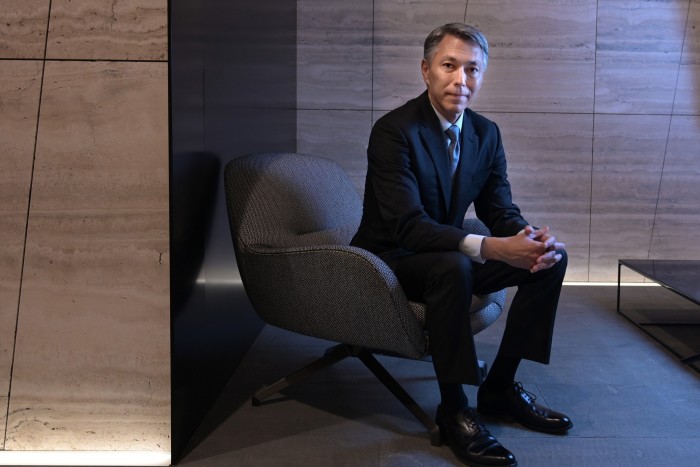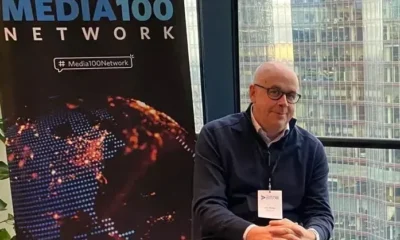The largest mass lawsuit in English legal history will kick off on Monday as mining company BHP faces a multibillion-pound claim brought on behalf of about 620,000 alleged victims of one of Brazil’s worst environmental disasters.
Nine years after a dam that held waste materials burst at an iron-ore mine near the town of Mariana and unleashed a wave of toxic sludge, killing 19 people, a long-awaited courtroom showdown over compensation for the devastation is due to get under way in London.
On the eve of the High Court civil trial, BHP and its partner on the project, Brazilian mining group Vale, said they had put forward a revised $23.8bn proposal in Brazil to settle claims made against them there — up from about $18bn they proposed in April.
But the latest offer was dismissed by UK law firm Pogust Goodhead, which is representing the claimants in London, claiming it was a “desperate attempt” to “avoid being held accountable”.
The case is among the most complex of a new breed of high-value lawsuits hitting the English courts, fuelled in part by the rise in recent years of funds that specialise in financing litigation.
Tom Goodhead, co-founder of Pogust Goodhead, said the proceedings would give victims of the catastrophe an “opportunity for accountability and justice”.

Goodhead said that the case would show “that the many victims of corporate misconduct have a new route to justice by taking on multinationals on their home turf.”
When the disaster occurred in November 2015, BHP Billiton was dual-listed in both London and Australia, and had a non-operating stake in the Samarco project, a joint venture with Vale. BHP’s main listing is now in Australia, along with its headquarters.
The legal action in England was welcomed by Thiago Alves, co-ordinator of MAB, an organisation for victims affected by dam disasters in Brazil.
Alves said it was important for “victims being able to go to a foreign country, to go to the owner’s house to complain”.
Yet the case has become a lightning rod for critics of London’s emerging claimant law firms and litigation-funding industry.
BHP said the proceedings, which are being bankrolled by US alternative asset manager Gramercy, were unnecessary and not in the interests of victims.
The company said in a statement that the London case “duplicates” compensation schemes in Brazil, and that up to 30 per cent of any sums paid through the English courts would be “diverted” to “class action lawyers and [litigation] funders”.
Litigation funders such as Gramercy back what they assess to be credible lawsuits in exchange for a cut of any award, making big-ticket litigation a potentially attractive proposition for them.
The case was being heard thousands of miles away from the site of the catastrophe, noted Kenny Henderson, partner at law firm CMS, who is not involved in the case. While the “long-arm jurisdiction” of English courts was not a new phenomenon, he said, “what sets this apart is the size”.
The legal bill from the proceedings, which has an unprecedented number of claimants, is likely to run into hundreds of millions of pounds. Under the English courts’ system of “loser pays”, the losing side typically pays the other party’s legal costs.
Goodhead said the claimants’ legal costs by the end of the first round of proceedings — which is scheduled to run into next year and will determine whether BHP can be held legally liable — would amount to about £250mn.


The size of any payouts would be subject to a second round of hearings. BHP has agreed to split any sums due with Vale.
The Australian company has retained “magic circle” law firm Slaughter and May, with Daniel Toledano KC and Shaheed Fatima KC as barristers.
BHP chief executive Mike Henry is not scheduled to appear, but factual witnesses are expected to include its ex-chief financial officer Peter Beaven.
The plaintiffs, which include 2,000 businesses, 46 municipalities and 65 faith-based organisations, previously put the value of the claim at $36bn, before interest and inflation. This would include awards for pain and suffering, as well as financial losses and property damages.
However, they recognise the estimate represents a “high-water mark”, as it is based in part on self-declared losses and individual claimants would need to prove them to receive the money if the court finds BHP is legally liable to make payouts.

Legally, the claimants’ case has two strands. The first is that BHP can be held liable for the dam’s collapse because it had a 50 per cent interest in Samarco and benefited financially from the project. The claimants argue the legal principle of “strict liability” applies, meaning they do not need to prove BHP was at fault.
The second, alternative, argument is that BHP is liable as a result of its behaviour. In legal papers, the claimants argue that Samarco’s iron ore production had been “ramped up at the instance” of both BHP and Vale in an attempt to maintain profits in the face of a falling price of the commodity.
BHP contests both strands. It argues Samarco was an independent entity, with a separate management team that made its own decisions. In its defence filed with the court, BHP denied its executives had knowledge that the dam’s safety had been comprised.
The mining group also argues that parts of the claim have been brought too late, that the municipalities lack legal standing to bring claims in London, and that some of those who have received payouts signed waiver agreements eliminating its legal liability.

BHP said it and Vale had already spent more than $7.9bn on financial assistance, compensation and repair and rebuilding for about 430,000 individuals, local businesses and indigenous communities through the Renova Foundation, set up in response to the disaster.
The two companies have been holding long-running talks with authorities in Brazil to pay further sums. On top of the $7.9bn, BHP said on Friday that they had proposed an additional R$132bn ($23.8bn), largely to be paid to government entities, but also including other items including “a new compensation system”.
In a statement ahead of the trial, BHP said that it was seeking to “finalise a fair and comprehensive compensation and rehabilitation process” that would “keep funds in Brazil for the Brazilian people and environment affected”.
The dam collapse “was a tragedy and our deepest sympathies remain with the impacted families and communities”, BHP added.
Goodhead said there had so far been a “systemic failure” to provide adequate compensation. Many had received only “de minimis” amounts and there were others whom BHP and Vale had “simply not recognised” as being victims.

Pogust Goodhead this month filed an application for contempt of court proceedings in London against BHP, saying that it backed legal action in Brazil by the Brazilian Mining Association (IBRAM), which challenged the ability of municipalities to litigate abroad.
The law firm said in its application: “The defendants were aware that they were initiating a claim before the Brazilian Courts to adjudicate a matter set to be adjudicated by the English courts.”
BHP declined to comment on the application.
Goodhead recognised it could be several years before claimants received any monies through the English court system.
Alves said that among communities affected there was “a mixture of indignation and fatigue on various levels. But there is also great resilience”.




























































































































































You must be logged in to post a comment Login